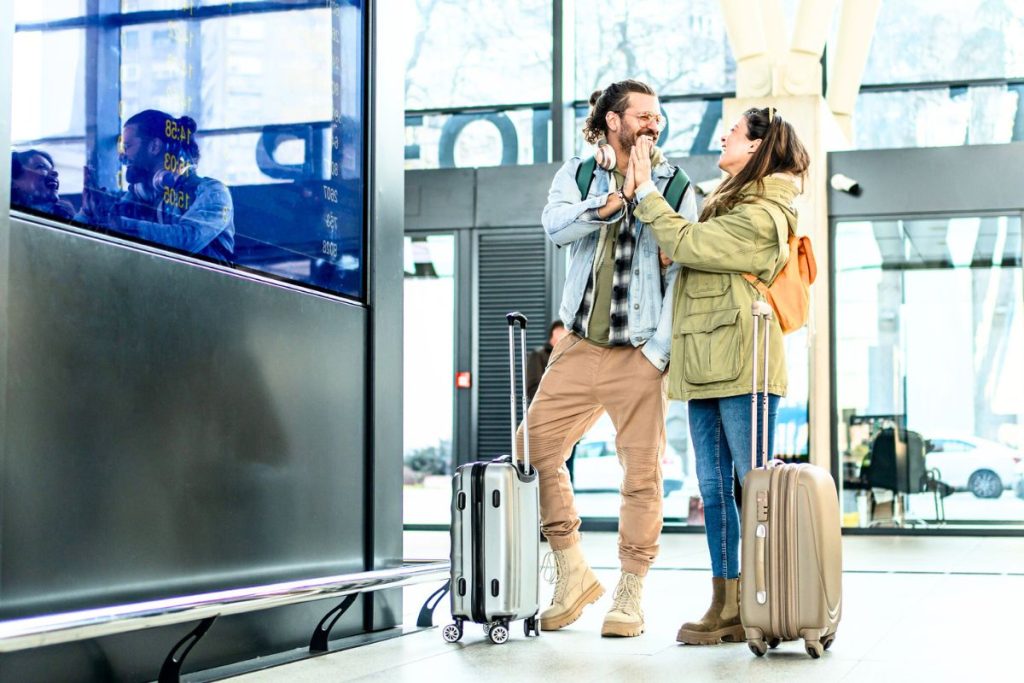If you’ve ever felt overwhelmed while traveling, you’re not alone. Between missed flights, crowded attractions, and the stress of packing, travel can quickly turn from an exciting adventure into a frustrating experience. Rick Steves, the travel expert known for his European guides and TV shows, has spent years guiding travelers through the highs and lows of exploring new places. In a recent interview, Steves shared some of his top advice to help you avoid common travel mistakes and make your trip smoother. Here’s what he had to say.
Travel Light and Avoid Tight Connections
One of Rick Steves’ golden rules is to travel light. In fact, he never checks luggage, and he encourages others to follow suit. “It’s more important than ever to travel light,” he says. Whether you’re traveling for two weeks or two months, or it’s winter or summer, Steves believes a single carry-on bag is all you need.
Having fewer bags reduces your chances of losing your luggage, and it’s much easier to move around when you’re not weighed down by heavy suitcases. Plus, carry-on bags are more flexible—if your flight gets delayed or changed, you can easily jump on a different one without worrying about losing your clothes in the process. For those who struggle with packing light, Steves suggests using packing cubes to organize and compress clothes, maximizing the space in your bag.
Another piece of advice Steves gives is to plan your flight connections carefully, especially when flying internationally. For example, when traveling to countries within the Schengen Area, you’ll need to clear passport control when you first enter the zone. If your connecting flight is tight, make sure to account for the time it might take to get through immigration and security, which can sometimes take longer than expected.
Book Key Attractions, But Leave Room for Flexibility
2023 is shaping up to be a busy year for tourism, with events like the coronation of King Charles and the Paris Olympics attracting massive crowds to Europe. Steves points out that while popular destinations will inevitably be packed, careful planning can help alleviate the pressure. “People really need to understand that there will be a lot of people in Europe,” he says, stressing that pre-booking tickets for popular sites will help you avoid wasting precious time in long lines.
Steves suggests using a well-organized guidebook, like his own, which has been updated to reflect changes made during the pandemic, such as online booking systems and new opening hours. According to Steves, some major sites, like the Anne Frank House in Amsterdam or the Van Gogh Museum, are must-book attractions, but once you’ve made your essential reservations, you can relax and enjoy the rest of your trip. “The rest of the time, just say yes to opportunities,” he advises. There’s no need to meticulously schedule every meal or outing; some of the best travel moments happen spontaneously.
Avoid Crowded Tourist Traps
While social media has made it easier to find recommendations for the “best” places to visit, Steves cautions against following the herd. He’s noticed that many travelers are drawn to the same spots, often due to Instagram or Tripadvisor recommendations. The problem with this is that these places become overcrowded, making it difficult to truly enjoy the experience.
“There might be a place just down the street that’s 90% as good, but without the crowd,” he says. Steves encourages travelers to embrace the local culture and seek out the hidden gems—those small family-run businesses or lesser-known attractions that offer a more authentic and stress-free experience.
Don’t Try to Do It All
Perhaps the most important tip Steves offers is to let go of the pressure to see everything in one trip. As he wisely puts it, “Assume you’ll be back.” Too often, travelers try to check off every museum, historical site, and famous restaurant from their list, which can lead to burnout and frustration. Instead of rushing from one landmark to the next, Steves suggests slowing down and allowing yourself to enjoy the journey without the burden of ticking off items on a list.
“You can’t do everything in one trip,” Steves says. “And that’s okay. Focus on what you enjoy, and leave room for the unexpected.”
Conclusion: Travel With Purpose, But Stay Open to the Unexpected
Rick Steves’ advice is all about balance—between careful planning and spontaneous exploration. By traveling light, pre-booking only what’s essential, and avoiding the crowds, you’ll be able to create a more enjoyable and stress-free travel experience. And perhaps most importantly, Steves reminds us to take the pressure off ourselves. After all, travel is about enjoying new experiences, not just checking boxes.

